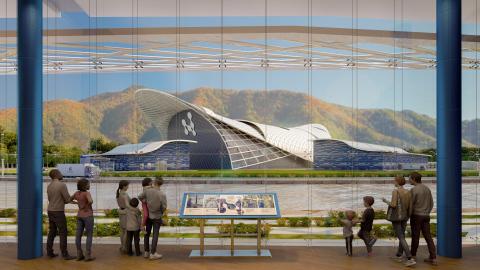Mini-Reactors To Complement Renewables For Carbon-Free Electricity Era
Tyler Durden
Sat, 09/05/2020 – 07:35
Perhaps the time is right for a new wave of nuclear reactors, ones that are smaller than traditional nuclear power plants for several reasons:
-
First, mini-nuclear reactors could compete with green energy with hopes of reducing CO2 emissions by 2050.
-
Second, traditional nuclear power plants are aging, and construction is plagued with delays and substantial cost overruns.
Attention surrounding mini-reactors spiked in late Aug. following Bill Gates’ nuclear energy venture, TerraPower LLC., is set to develop miniature nuclear power stations.
Gates founded the firm more than a decade ago, is set to build commercial advanced nuclear energy plants called “Natrium” in the U.S. later in the decade.
Future demand from nuclear power is likely to come from plants that are more than 90% smaller than traditional nuclear plants that could revive the stalled industry following Three Mile Island, Chernobyl, and Fukushima nuclear accidents.
Bloomberg reports, there are three other companies NuScale Power LLC. in the U.S., China National Nuclear Corp., and Russia’s Rosatom, are all developing mini-reactors that could one day offer an affordable solution to produce carbon-free electricity without monstrous plants.
As renewable energy supplies increase and governments reduce reliance on fossil fuel-derived energy to power grids, mini-nuclear reactors will likely complement solar and wind in the future.
California’s rolling blackouts earlier this month are the latest example of grid failure, powered by renewables and fossil fuels, an unreliable combination for sustainable and clean power.
Advocates for nuclear power say a renewables-only dominated grid is unlikely because of power fluctuations must be blended with mini-reactors.
“At least for now, and for the foreseeable future, it’s difficult to see a renewables-only energy system,” said Chris Colbert, chief strategy officer at Portland, Oregon-based NuScale.

Developers of mini-reactors say plants will be smaller, and the possibility of a massive radiation leak is unlikely. But Edwin Lyman, director of nuclear power safety at the Union of Concerned Scientists, said smaller reactors have weaker systems to prevent a leak.

Lyman said this is concerning because some of these smaller reactors are expected to be built around populated areas.
“You could have a smaller reactor but weaker containment and less distance to population centers,” he said. “Paradoxically, a small reactor could end up releasing more material than a large reactor.”
Besides the risk of a radiation accident, smaller plants could lift the overall industry from a ten-year pause in the construction of convention plants. Blending power grids with renewables and mini reactors appear to be the future as countries march towards carbon-free electricity.
via ZeroHedge News https://ift.tt/359a0A8 Tyler Durden